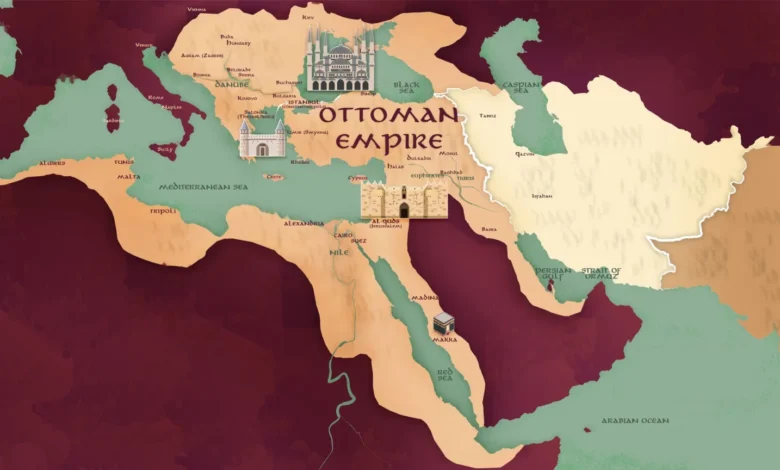
Azerbaijan has a long and rich history of Islam, which has shaped its culture, architecture, and identity over centuries. As a Muslim-majority country, Islam has been the dominant religion in Azerbaijan since the 7th century. This history is interwoven with regional political shifts and the influence of major Islamic empires, including the Ottoman Caliphate (Usmani Khilafat).
Islamic Arrival in Azerbaijan
Islam was first introduced to Azerbaijan in the mid-7th century during the Arab conquest of the Caucasus. Before this, Azerbaijan had a rich tradition of Zoroastrianism and other ancient beliefs, but Islam quickly spread throughout the region due to its strategic location and the involvement of early Muslim rulers.
Key Milestones in the Islamic History of Azerbaijan:
- Arab Conquest: The Umayyad and later Abbasid Caliphates established Islam as the dominant religion in the region. Islamic architecture, such as mosques and madrasas, began to be built, and the region became a center for Islamic learning and scholarship.
- Seljuk Empire: By the 11th century, Azerbaijan came under the rule of the Seljuk Turks, who further promoted Sunni Islam in the region.
- Safavid Dynasty: In the early 16th century, the rise of the Safavid Empire marked a significant shift in Azerbaijan’s religious landscape. Shah Ismail I of the Safavids declared Twelver Shia Islam as the state religion, and Azerbaijan became a stronghold of Shia Islam, which remains the majority denomination today.
The Role of the Ottoman Caliphate (Usmani Khilafat) in Azerbaijan
The Ottoman Empire, also known as the Usmani Khilafat, played a significant role in shaping the political and religious landscape of Azerbaijan, particularly in the context of its rivalry with the Safavid Empire.
1. Ottoman-Safavid Rivalry
Azerbaijan was frequently a battleground between the Sunni Ottomans and the Shia Safavids, with each empire vying for control over the region. The rivalry between the two powers was not only political but also religious, as the Ottomans were staunch defenders of Sunni Islam, while the Safavids promoted Shia Islam.
- Treaty of Amasya (1555): This treaty between the Ottoman Empire and the Safavids divided control of the Caucasus, with parts of Azerbaijan falling under Ottoman rule for brief periods.
- Wars for Control: During the 16th and 17th centuries, Azerbaijan changed hands multiple times between the Ottomans and the Safavids, with cities like Baku, Ganja, and Tabriz often shifting allegiance.
2. Ottoman Influence on Azerbaijani Society
Although the Safavids eventually solidified their control over Azerbaijan, the Ottoman Empire’s influence was still felt in the region, particularly in areas like trade, culture, and religious exchanges. Ottoman architecture and administrative practices left a lasting mark on parts of Azerbaijan.
- Religious Influence: Sunni communities in Azerbaijan were often aligned with Ottoman religious practices, and Ottoman religious scholars were highly respected in the region.
The End of the Ottoman Caliphate and Its Legacy
The dissolution of the Ottoman Empire in the early 20th century had a significant impact on the Muslim world, including Azerbaijan. The Ottoman Caliphate, which had been the symbol of Muslim unity and leadership for centuries, officially ended in 1924. By this time, Azerbaijan was under Russian control, having been incorporated into the Russian Empire in the 19th century, and later becoming part of the Soviet Union in 1920.
Impact on Azerbaijan:
- Secularism Under Soviet Rule: With the rise of Soviet control, Azerbaijan experienced a period of enforced secularism, with religious practices being severely restricted. Many mosques were closed, and Islamic education was discouraged.
- Islamic Revival Post-Independence: After Azerbaijan gained independence from the Soviet Union in 1991, there was a resurgence of Islamic identity, with mosques being reopened and religious freedom restored. Today, both Sunni and Shia communities coexist peacefully in Azerbaijan, with Shia Islam being the majority.
Conclusion
Azerbaijan’s Islamic history is deeply rooted in the early days of Islam, shaped by both Sunni and Shia influences. The rivalry between the Ottoman Caliphate and the Safavid Empire had a profound impact on the region, particularly in terms of religious alignment and political control. While the Usmani Khilafat no longer plays a direct role in Azerbaijan’s affairs, its legacy is still present in the cultural and religious ties that connect Azerbaijan to the broader Muslim world.



